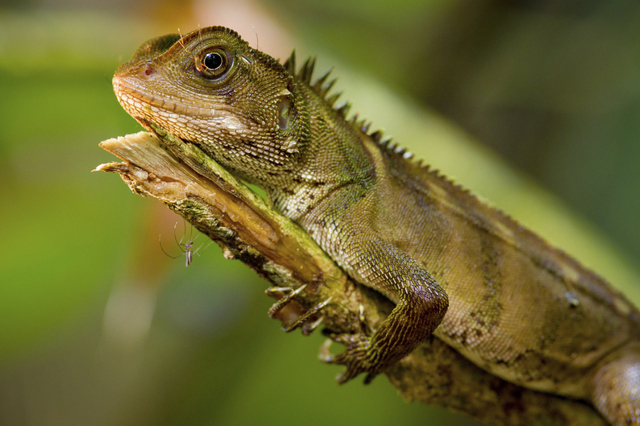Kids with pet reptiles run risk of Salmonella infection, study shows
One in four children younger than age five who were infected with Salmonella got the disease from a pet reptile in a recent UK study.
The children with reptile-associated infections were significantly younger than other kids with Salmonella infections, more likely to be hospitalized and more likely to have invasive infections that affected the blood or brain.
“In a household with both toddlers (or young infants) and reptile pets, there is good reason to exercise reasonable caution,” Dr. Daniel Murphy of Royal Cornwall Hospital in England told Reuters Health by email.
According to the Centers for Disease Control and Prevention, 1.2 million Americans are infected with Salmonella every year.
People with compromised immune systems, as well as young children and infants are the most susceptible to infection, according to Dr. Christoph Berger of the University Children’s Hospital Zurich in Switzerland, who was not involved in the study.
Murphy and another researcher examined data on Salmonella infections in children under five years old in the South West area of the UK from 2010 to 2013, to determine whether the children had been exposed to reptiles like lizards or snakes and whether they had been hospitalized for the infection.
Of the 175 cases examined, 48 children had been exposed to reptiles. Among those with reptile exposure, about half were hospitalized - compared to less than one fifth of the children without reptile exposure.
The median age of kids with Salmonella cases linked to reptiles was six months old, compared to about one year among kids not exposed to reptiles.
The researchers wrote December 22 online in Archives of Diseases in Childhood that there are multiple strains of Salmonella bacteria and the ones associated with reptiles tend to be different from those seen in food poisoning, which may explain the more severe symptoms seen in reptile-associated cases.
Eight of the 48 children with infections linked to reptiles had blood infections, meningitis or colitis. In comparison, only four of 127 cases not associated with reptiles had such serious infections.
Salmonella is transferred from pets to humans when a reptile excretes the bacteria out of its gut, Murphy said. This is especially dangerous for young toddlers, who may be in an “oral exploration phase” and are more likely to ingest the bacteria, he said.
Berger recommended hand washing after any contact with turtles and other reptiles, but also noted that for children under one year, “there is a high risk for indirect transmission and disease caused by Salmonella (even if the baby has no direct contact with the reptile).”
Murphy and his coauthor caution that as indoor reptiles become more popular as pets, more children are likely to be hospitalized with Salmonella infections and doctors need to be aware of this risk.
Murphy recommends that parents of young children with indoor reptile pets should consider keeping the reptile out of the spaces the child uses.
Parents of young children looking to get a reptile “should consider holding off on that until the child is past the oral exploration stage, stopped crawling and old enough to wash their own hands,” he said.






















